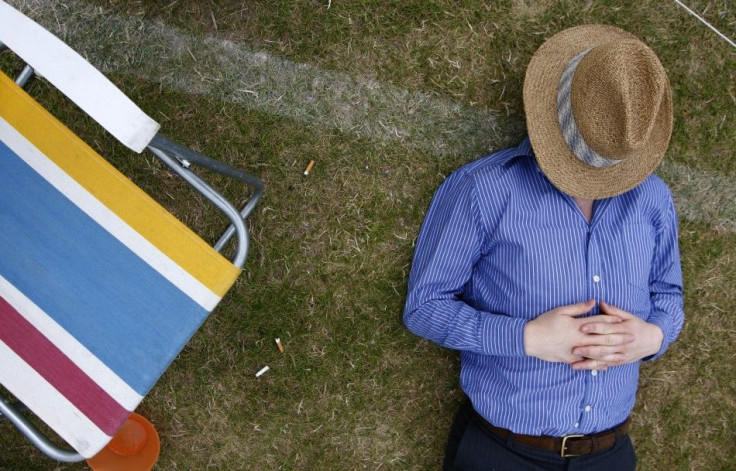Sleep Apnea May Increase Cancer Death Risk

Sleep apnea is already linked to a host of health problems, but according to new research, it can also raise your risk of dying from cancer. Cancer patients with sleep apnea have a higher risk of dying from their cancer than those without sleep apnea, researchers said.
This is really big news, Dr. Joseph Golish -- a professor of pulmonary and sleep medicine at the Case Western Reserve University School of Medicine who was not involved in the research -- told the New York Times. It's the first time this has been shown, and it looks like a very solid association.
People with sleep apnea periodically stop breathing in their sleep. This causes a drop in oxygen levels and forces them to wake up often in the middle of the night to gasp for breath, researchers said.
It causes snoring and sleepiness during the day, Dr. Javier Nieto -- author of the study and the chair of the department of population health sciences at the University of Wisconsin School of Medicine and Public Health -- told HealthDay.
Aside from being an annoyance to your spouse, family members, and maybe even your neighbors, depending on how loud your snoring is, sleep apnea is a severe problem, Nieto said. Drowsiness and sleepiness during the day increase the risk of accidents, and sleep apnea is associated with cardiovascular disease, heart disease, strokes, hypertension, and cardiovascular mortality. Now, we see this new angle: an increase in cancer mortality.
Researchers looked at more than 22 years' worth of sleep data and found that the more episodes of sleep apnea people with cancer had, the higher their risk of death. Having between five and 14.9 episodes increased the death risk by 10 percent. Having from 15 to 29.9 episodes a night raised the risk by 50 percent -- and those with 30 or more were at a risk of death five times higher than those without sleep apnea.
Researchers are not sure why the death risk is so much higher, but said it is possible the decreased oxygen levels increase the growth of tumors.
Sleep apnea is most commonly treated with a continuous positive airway pressure, aka CPAP, machine. The machine fits over a user's face like a mask. It blows air into the throat to keep the airway open, allowing the user to sleep without having to wake up to breathe. Surgery can also be performed to increase the size of the airway, but it is very painful, requires months of recovery, and slightly changes one's facial appearance.
More than 100 million people worldwide have sleep apnea, many of whom remain undiagnosed, according to the World Health Organization. Undiagnosed sleep apnea adds an estimated $3.4 billion a year to U.S. medical costs, as per a 1999 study conducted by researchers at the University of Washington's department of medicine.
This [study] goes along with the link between sleep apnea and pretty much every chronic medical condition out there, Dr. Steven Y. Park -- an ear, nose, and throat physician who is a sleep-medicine specialist at Montefiore Medical Center in New York -- told HealthDay. Anyone with snoring, severe daytime fatigue, lack of memory or focus, high blood pressure, diabetes, and even someone who has to get up to go to the bathroom at night should be screened for sleep apnea.
© Copyright IBTimes 2024. All rights reserved.





















